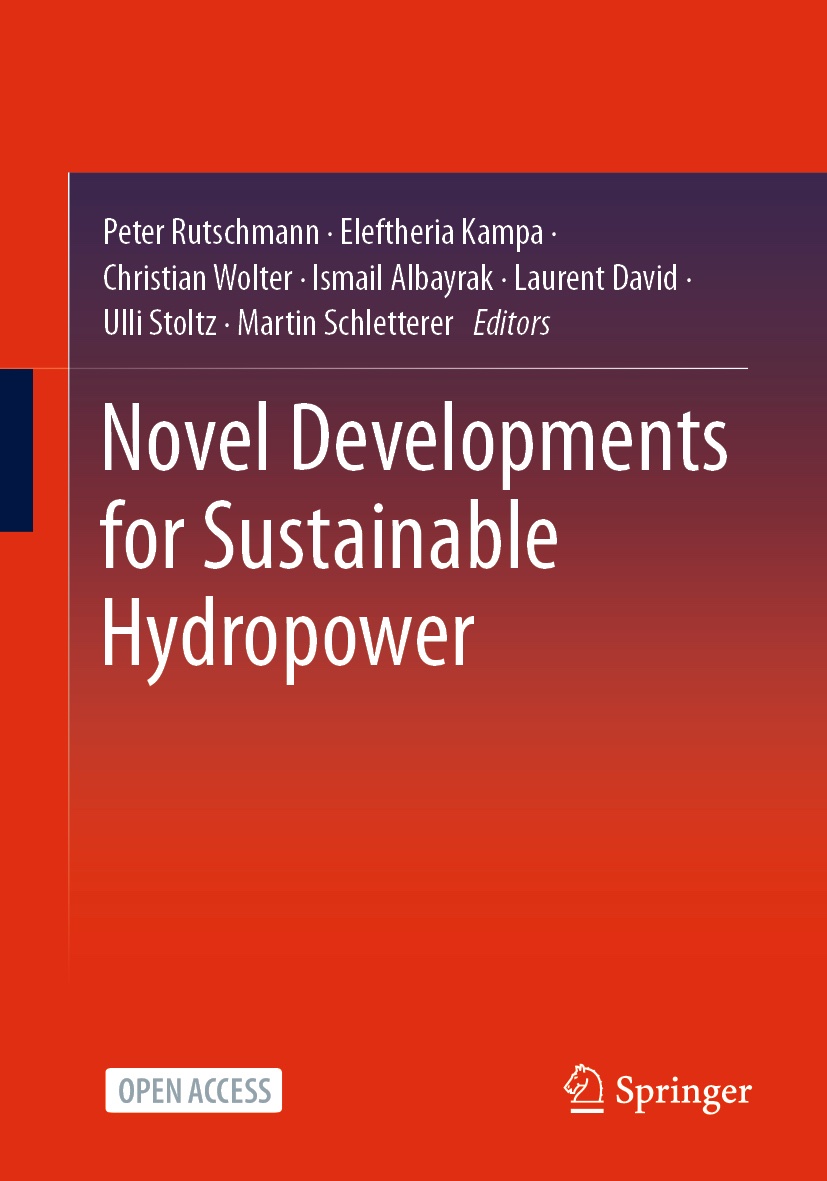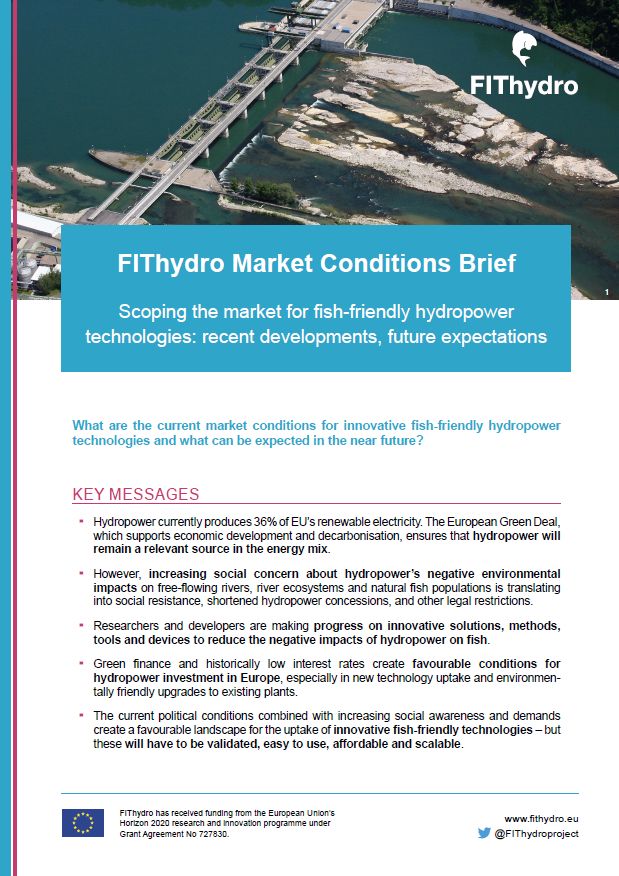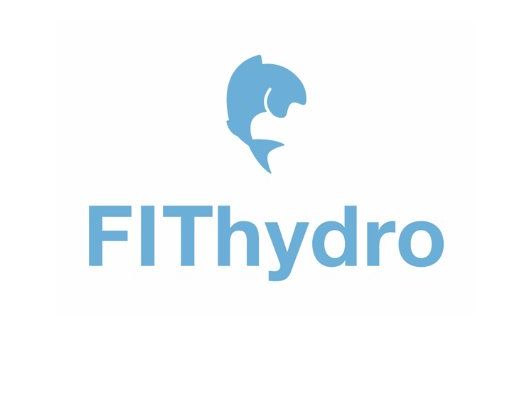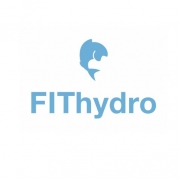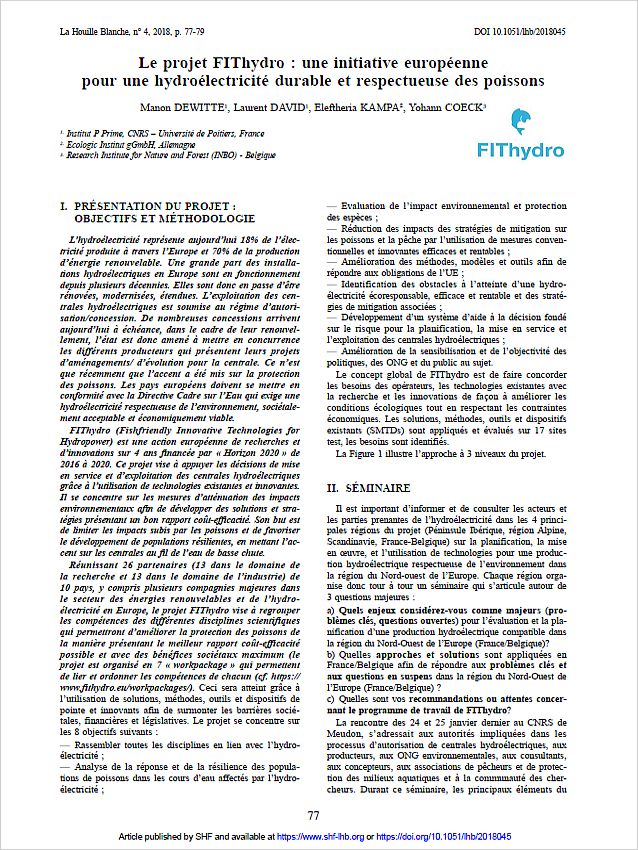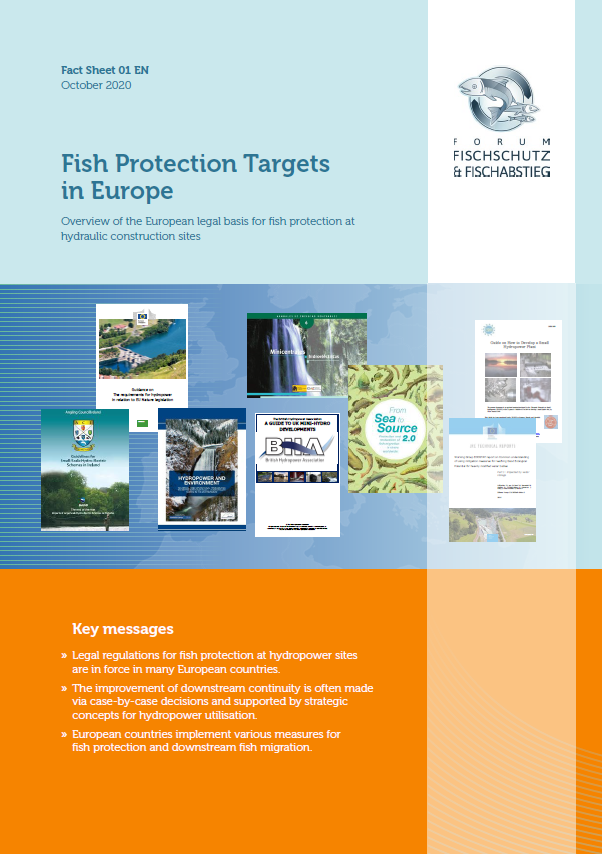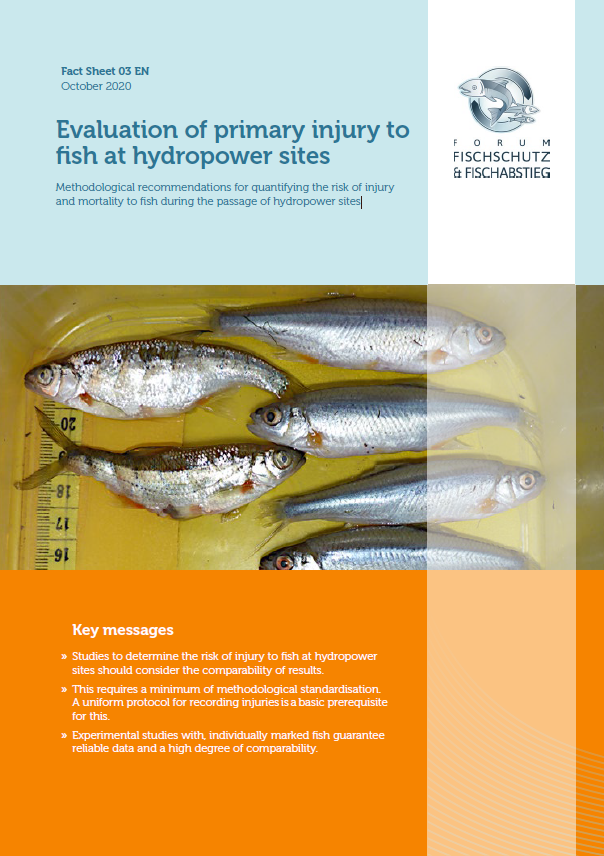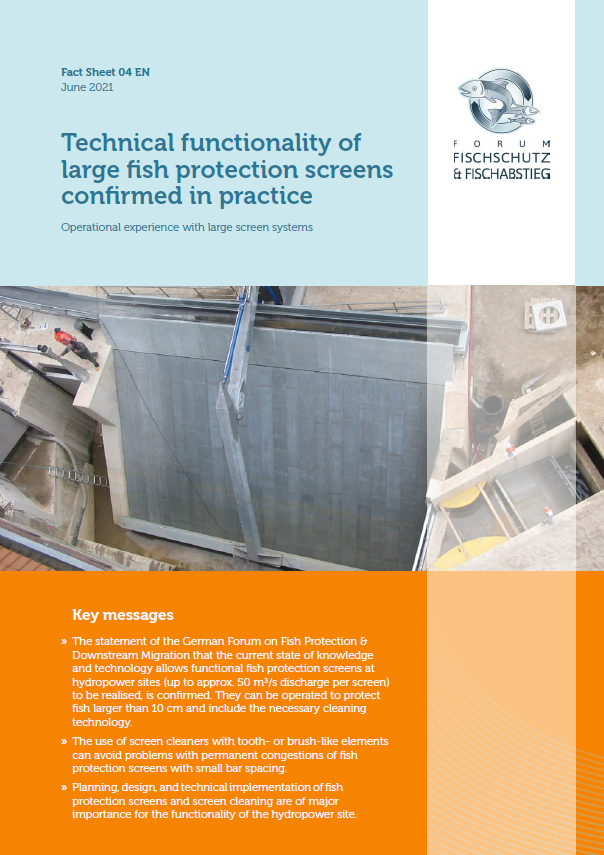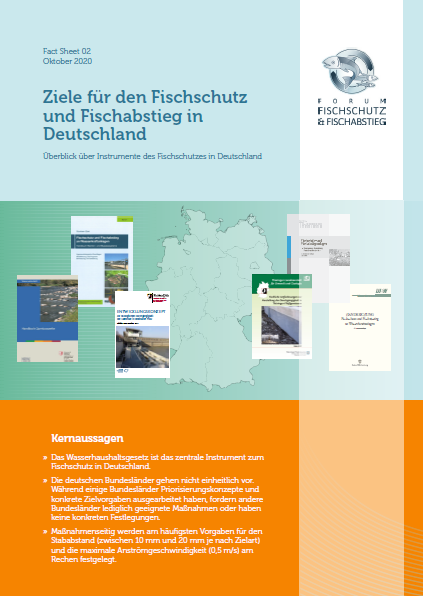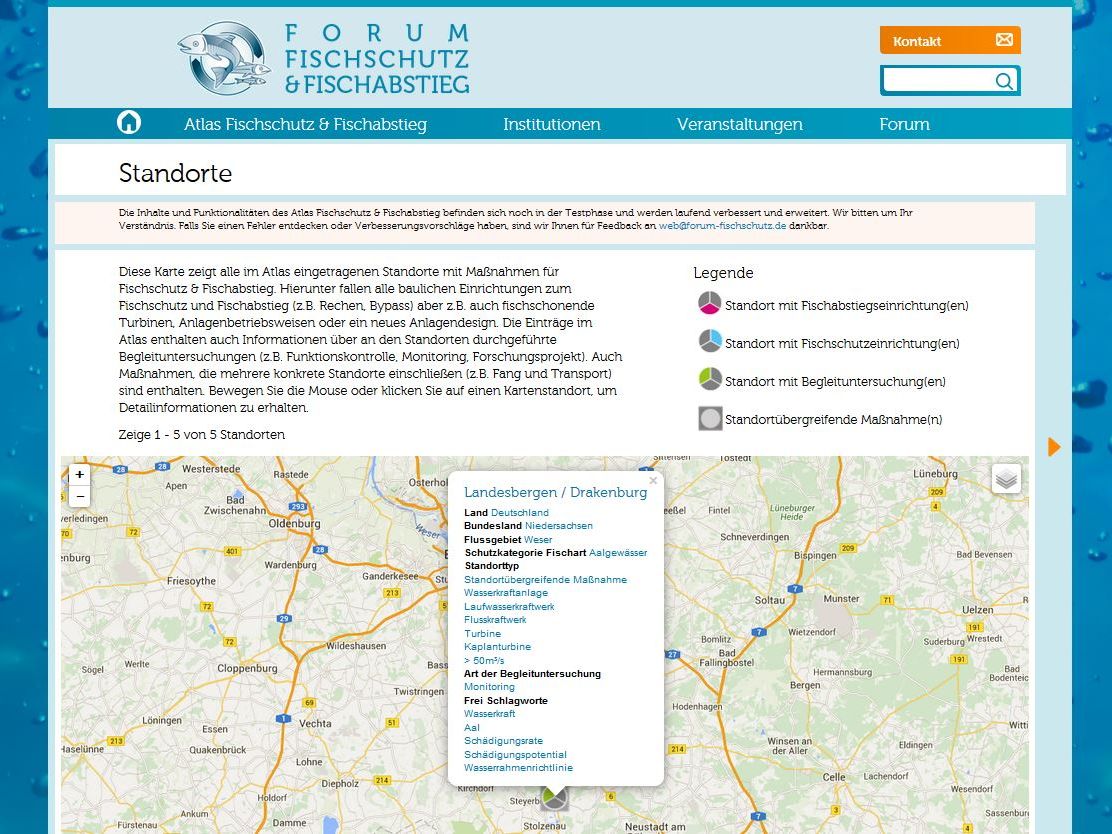Novel Developments for Sustainable Hydropower
- Publication
- Citation
Rutschmann, Peter et. al. (eds) 2022: Novel Developments for Sustainable Hydropower. Springer International Publishing.
This open access book presents (selected) new and innovative developments for sustainable and fish-friendly hydropower. It offers unique insights into the challenges, practices and policies of hydropower developments across 8 European countries, providing examples from on-site studies and European-wide analyses. The case studies throughout the book are practical "real-world" examples, which are intended to serve as inspiration for anyone who would like to know more about how solutions for more sustainable hydropower production can be designed and implemented. The book was co-edited by Ecologic Institute's Dr. Eleftheria Kampa. Authors of the Ecologic Institute contributed to the chapters on "Policy Framework for Hydropower Mitigation" and "Public Acceptance of Hydropower."
Hydropower is an important renewable energy source, which, however, can also impact aquatic ecosystems, fish populations and hydro-morphology. EU and national water, environmental and energy legislation strive for sustainable energy and water resource management as well as the protection of important habitats and species. These have an effect on the requirements and decision making processes for hydropower planning, commissioning and operation. With a high variety of measures existing and site-specific conditions as well as national and EU level legal requirements to consider, it can be difficult to determine, what issues to address and which measures to implement.
- Language
-
English
- Credits
Edited by:
Prof. Dr. Peter Rutschmann
Dr. Eleftheria Kampa
Dr. Christian Wolter
Dr. Ismail Albayrak
Prof. Laurent David
Ulli Stoltz
Ph.D. Martin Schletterer- Funding
-
European Commission, Directorate-General Research & Innovation (DG Research & Innovation), International - Published by
-
Springer-Verlag, Germany - Year
- ISBN
-
978-3-030-99138-8 (electronic)978-3-030-99137-1 (print)
- DOI
- Project
- Project ID
- Table of contents
-
Click to show full table of contents
1 Policy Framework for Hydropower Mitigation
Eleftheria Kampa
2 Costs of Ecological Mitigation at Hydropower Plants
Terese E. Venus, Nicole Smialek, Ana Adeva-Bustos, Joachim Pander, and Juergen Geist
3 Public Acceptance of Hydropower
Terese E. Venus, Mandy Hinzmann, and Holger Gerdes
4 Impacts and Risks of Hydropower
Ruben van Treeck, Juergen Geist, Joachim Pander, Jeffrey Tuhtan, and Christian Wolter
5 The Attractiveness of Fishways and Bypass Facilities
Armin Peter, Nils Schoelzel, Lisa Wilmsmeier, Ismail Albayrak, Francisco Javier Bravo-Córdoba, Ana García-Vega, Juan Francisco Fuentes-Pérez, Jorge Valbuena-Castro, Omar Carazo-Cea, Carlos Escudero-Ortega, Francisco Javier Sanz-Ronda, Damien Calluaud, Gérard Pineau, and Laurent David
6 Attraction Flow and Migration Habitat Assessment Using an Agent-Based Model
Ianina Kopecki, Matthias Schneider, and Tobias Hägele
7 Fish Guidance Structures with Narrow Bar Spacing: Physical Barriers
Laurent David, Ludovic Chatellier, Dominique Courret, Ismail Albayrak, and Robert M. Boes
8 Fish Guidance Structure with Wide Bar Spacing: Mechanical Behavioural Barrier
Ismail Albayrak and Robert M. Boes
9 Guidelines for Application of Different Analysis Methods of Fish Passage Through Turbines—Impact Assessment of Fish Behavioural Aspects
Franz Geiger and Ulli Stoltz
10 Measures to Improve Fish Passage Through a Turbine
Franz Geiger, Peter Rutschmann, and Ulli Stoltz
11 Archimedes Screw—An Alternative for Safe Migration Through Turbines?
Ine S. Pauwels, Jeffrey Tuhtan, Johan Coeck, David Buysse, and Raf Baeyens
12 Hydropeaking Impact Assessment for Iberian Cyprinids: Hydropeaking Tool Adaptation
Francisco Godinho, Julie Charmasson, Atle Harby, António Pinheiro, and Isabel Boavida
13 Modelling of Habitat Changes Related to Hydropeaking with CASiMiR
Ianina Kopecki, Matthias Schneider, and Martin Schletterer
14 Creation and Use of “Compensation” Habitats—An Integrated Approach
Georg Loy and Walter Reckendorfer
15 Risk Assessment and Decision Making on Mitigation Measures
Ruben van Treeck, Christian Wolter, Ian G. Cowx, Richard A. A. Noble, Myron King, Michael van Zyll de Jong, and Johannes Radinger
16 Conclusions and Outlook
Peter Rutschmann, Christian Wolter, Eleftheria Kampa, Ismail Albayrak, Laurent David, Ulli Stoltz, and Martin Schletterer - Keywords
-
hydropower, water, biodiversity, mitigation measures
Kampa, Eleftheria 2022: Policy Framework for Hydropower Mitigation. In: Rutschmann, Peter et. al. (eds) 2022: Novel Developments for Sustainable Hydropower. Springer International Publishing.
Venus, Terese E.; Mandy Hinzmann and Holger Gerdes 2022: Public Acceptance of Hydropower. In: Rutschmann, Peter et al. (eds) 2022: Novel Developments for Sustainable Hydropower. Springer International Publishing.
Third Cycle of the German Participatory Forum on Fish Protection and Downstream Migration
- Duration
-
-
- Funding
-
German Environment Agency (UBA), Germany
Keuneke, Rita; Edith Massmann and Stephan Naumann 2020: Fish Protection Targets in Europe. Overview of the European legal basis for fish protection at hydraulic construction sites. Ingenieurbüro Floecksmühle GmbH, German Environment Agency: Aachen, Dessau-Roßlau.
Wagner, Falko and Peter Warth 2020: Evaluation of primary injury to fish at hydropower sites. Methodological recommendations for quantifying the risk of injury and mortality to fish during the passage of hydropower sites. Jena: Institute of Aquatic Ecology and Fish Biology (IGF Jena).
Keuneke, Rita 2021: Technical functionality of large fish protection screens confirmed in practice. Operational experience with large screen systems. Ingenieurbüro Floecksmühle GmbH: Aachen.
Keuneke, Rita and Edith Massmann 2020: Ziele für den Fischschutz und Fischabstieg in Deutschland. Überblick über Instrumente des Fischschutzes in Deutschland. Ingenieurbüro Floecksmühle GmbH: Aachen.
Ecologic Institut 2016: Atlas Fischschutz & Fischabstieg. URL: http://forum-fischschutz.de/atlas-standorte.
